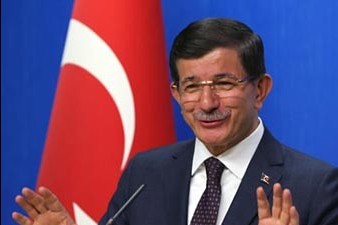
15/07/2015 09:45
Turkey nationalists reject coalition alliance, premier says
Turkey's nationalist party is unwilling to join the ruling party in a coalition alliance, Prime Minister Ahmet Davutoglu said Tuesday after a meeting with officials of the party which was long considered its most probable partner. AP reports.
Davutoglu is meeting party leaders as part of his search for a coalition partnership after the ruling Islamic-rooted party lost its parliamentary majority in Turkey's June 7 elections.
The prime minister was given a mandate on July 9 to form a government. He has 45 days from that date to build a coalition and if he can't, new elections will be called.
With more than a month to go before that deadline, Davutoglu told reporters after talks with Nationalist Movement Party leader Devlet Bahceli that the far-right party would prefer to remain an opposition party.
Davutoglu didn't rule out, however, more talks on forming a coalition with the party in the future.
The nationalist party was considered the ruling party's most natural ally because the two parties share a common religious and conservative voter base.
Surprisingly on Monday, Davutoglu said he held "sincere and friendly" coalition discussions with Turkey's center-left pro-secular party — his party's archrival. The two parties agreed to hold further consultations.
Davutoglu is scheduled to meet officials from Turkey's pro-Kurdish party on Wednesday, although he has ruled out a coalition alliance with it.
Earlier, President Recep Tayyip Erdogan warned parties to keep his status out of their coalition-building efforts and said he would stand in the way of any deal that would nix his dream projects.
Opposition parties accuse Erdogan of overstepping the powers of his presidency and want him reined in.
At a Ramadan fast-breaking dinner late Monday, Erdogan said he wouldn't allow big projects that he initiated — such as the construction of Istanbul's third airport and third bridge — to be shelved as part of a coalition deal.
Some pro-secular party members have suggested that some projects, criticized by environmentalists or for the way contracts were awarded, should be revised.
The election not only ended the ruling party's 13-year single-party rule, but came as a slap to Erdogan's ambitions to switch to a presidential system that would give him broad executive powers.








